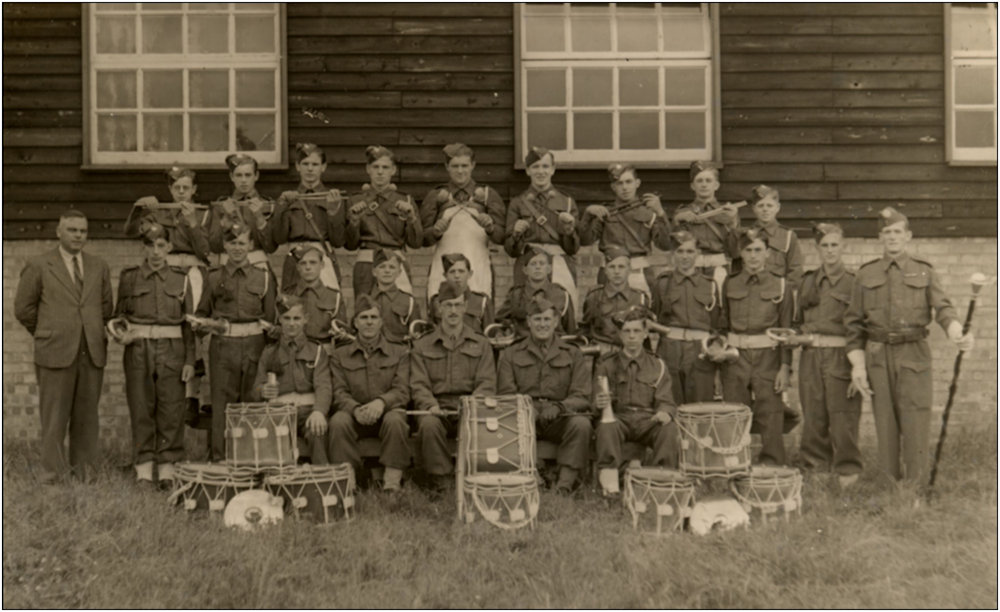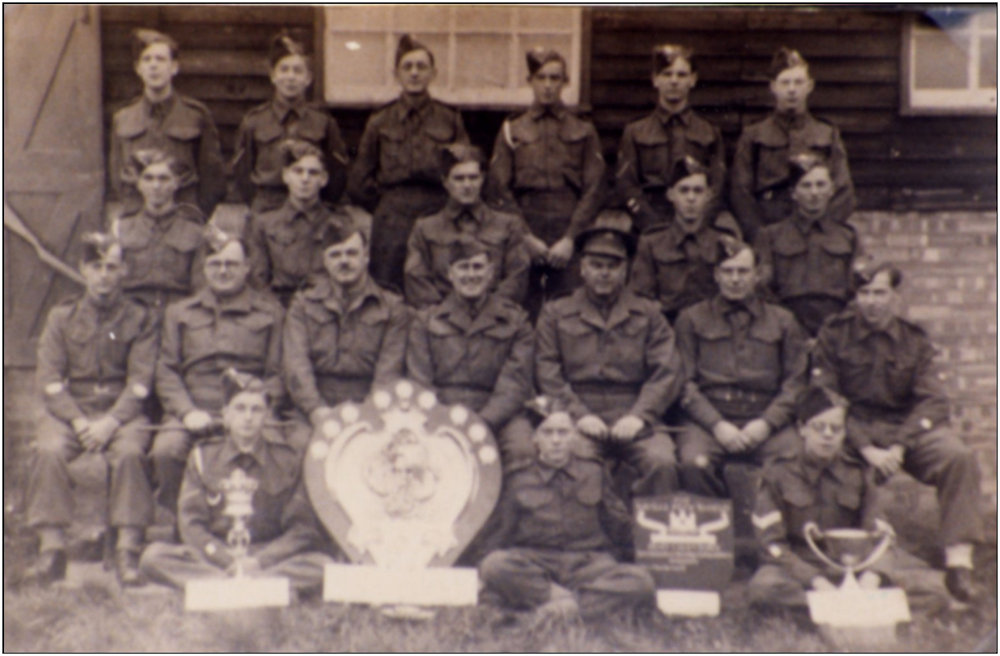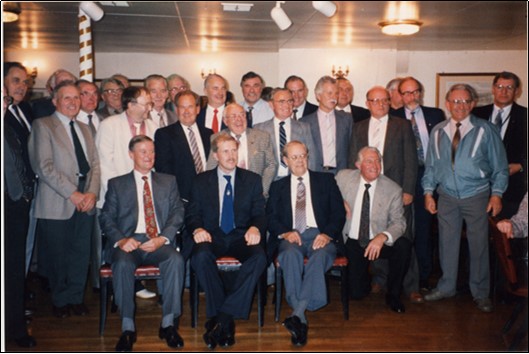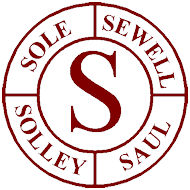By Fred Sole
This article was published in the April 2015 edition of Soul Search, the Journal of The Sole Society
Ed: We continue our late President, Fred Sole’s, ‘Memory Ramble’ with him joining the Army Cadets in 1942 aged 15. During his time in the Cadets Fred had the opportunity to play the drum, a hobby he maintained for many years of his life.
Shortly after leaving school, in common with many boys in Whittlesey, I received a letter from Mr. Burgess, the headmaster of Broad Street Junior school, telling me that an Army Cadet Company was to be formed in the town for boys aged 14 to 16 years. All those interested were asked to contact him with their identity cards. Along with Norman Jones I was one of the early applicants.
The first meeting took place in the Drill Hall, Station Road, when Mr. Burgess explained what would be expected of a cadet in the way of attendances and behaviour, and the training that would be given. This would be Marching, Foot and Rifle Drill, Light Machine Gun and Rifle Shooting, Map Reading and Fieldcraft. For young boys at that time nothing could have been more attractive. Parades would be held on Monday evenings.
On 4th March 1942 Mr Burgess reported to the County Cadet Adjutant that the strength of ‘D’ Company (Whittlesey), 1st Isle of Ely Battalion, Cambridgeshire Army Cadet Force was 135.
Uniforms began to arrive on 27th March 1942.
For a few weeks we were introduced to marching and parade ground disciplines by a Home Guard sergeant which, on receipt of some obsolete army rifles, was followed by foot drills whilst carrying a rifle.
In April we began ‘field’ training, our first taste of ‘really active’ soldiering.
Most cadets had received their uniforms by April and were able to attend the Empire Youth Parade and church service at St. Andrews on 26th April.
In May we used the miniature firing range for the first time and also underwent our first ‘tactical’ exercise in attack and defence. That proved to be most enjoyable and, as my later service was to confirm, quite realistic.
The annual roll call on 31st October showed a reduction in numbers to 106. Allowing for the loss of a few older ones to the Home Guard perhaps some had got cold feet!
In February 1943 we lost one of our officers in a motor cycle accident Mr. (Lt.) Lambert was a school teacher who was well respected by pupils and cadets. Fortunately we had other officers who were always willing to give their time to us – Mr. Ailsby, a local chemist; Mr. Ellicott, of National Provincial Bank, and Mr Franks, of Whittlesey Central Brick Company.
1943 saw the successful completion of my efforts to achieve the targets set by the cadet force. In April I passed Part 1 of the War Certificate ‘A’ which required proficiency in the basic military skills on the square and in the field, and in July I gained a pass in Part 2 of the certificate which assessed one’s general abilities and capability of commanding a ‘section’ in the field (commonly consisting of 6-10 men).
However, in May of that year something happened which caused my interest to take a very different route.
The townspeople of Whittlesey and the local Home Guard platoons combined to collect the sum of £200 and presented the Cadet Company with the following instruments: 1 Bass Drum, 2 Tenor Drums, 6 Guards Pattern Side (Snare) Drums, 12 silver plated Bugles and I pair of Cymbals, together with the necessary sticks, beaters, leg aprons and a Leopard Skin Bass Drum Apron. That sum today would barely cover the cymbals!
We also acquired a Mace, but whether that was part of the presentation or the result of another donation I cannot remember.
Maj. Burgess devoted the next parade night to the business of explaining about the new instruments and how they had been paid for and introducing the two gentlemen who would be in charge of the future ‘bandsmen’ – Mr W.E. (Billy) Beaton, a local farmer and ex Boys Brigade drummer, and Mr.G. (George) Cole a local butcher who had been a local Brass Bandsman. He then left it to them to select the most suitable volunteers (of which there were plenty!).
Potential drummers remained in the large hall and the hopeful buglers followed Mr Cole to the smaller adjacent room. I stayed with the drummers because I knew that beating an instrument had to be much easier than blowing one.
Mr Beaton took six boys at a time, showing them how to strap on a drum and hold the sticks, and then played two short drum rolls and part of a drum solo – a standard military ‘start up’.. “Now” he said, “You’re going to be showmen, so don’t be nervous, play what I played”. The resultant cacophony as each made his attempt caused great amusement.
My turn came in the 5th or 6th group and when I was able to repeat the two rolls perfectly the resulting stunned silence was embarrassing. “That was good” he said, “what about the rest of it?”. I said it had happened too fast for me to remember it, so he broke it into parts and after a couple of attempts I played that too. I had great difficulty in explaining to the others that I had never held a pair of sticks before. I think Mr. Beaton knew even that small cost would have been out of my reach at the time. An unexpected new ability had been revealed and a life long interest begun.

Granny agreed that we would be able to afford my attending the annual camp that year (my first!) so I was able to be part of the surprise we gave our friendly rivals, the Wisbech ‘A’ Company band, who were at the camp too.
The year finished well too. On November 2nd Battalion Part 2 orders confirmed my promotion to Corporal. Having little else to prove I could now devote my efforts to advancing the reputation of the band.
By the time I left for full time service the hard work put in by Mr Beaton and Mr Cole had paid off. Our band was No.1 in the county and its reputation had spread much wider as it frequently visited distant places to play at many different events.
On 23 October during the Annual Company Inspection parade by the Battalion Commander I was presented with the new Band Challenge Cup, presented by Mr. Beaton (and £5) as the most efficient member of the band – I had never before possessed that much money at once.

The Army Cadet Force that I left at the end of 1944 was quite different from the one I had joined three years earlier. Although the liability of National Service still existed, and basic military training was still part of the curriculum, a greater emphasis on sport and ‘Club’ activities had been introduced.
On reflection I think my Army Cadet Force years were very beneficial for me.
They certainly helped to make my introduction to army life much easier than it was for many. It is therefore with some sadness that I see the organisation today (2014) so depleted and of so little interest to the average teenager.
Many years later the Army Cadets came into my life again. In 1992 the Whittlesey Army Cadet Detachment of the Peterborough ‘A’ Company (sadly reduced to about 12!) held a ‘Celebration Display’ of 50 years of activity. I heard of this and made arrangements to meet some of the ‘Old Originals’ during that afternoon.
The visitors that afternoon were very surprised to see (and hear!) half-a-dozen elderly men, blowing and beating out marches that hadn’t been heard in the town for years – before some of the listeners had been born.
At the day there had been talk of the Cadet Force ‘Top Brass’ starting some form of Fellowship Reunion Group to remember the friendships of those years. Although several present had expressed interest, two years later at a family party Brian Smith and myself noted that nothing had been done and the local detachment strength was dangerously close to zero. I expressed the view that if we wanted something done we obviously had to do it ourselves and Brian agreed. Within a week we had found five others who were interested enough to form an informal ‘committee’ – The Magnificent Seven – my brother Frank, Don Redhead, Alf (Bill) Todd, Brian Parr and George Lewis.
Our first formal reunion was held in the Falcon Hotel at Whittlesey in October 1994. In October 2012 we held our eighteenth reunion with 69 people sitting down to a Sunday lunch. Twenty one of the company were original ex-cadets from the 1940 – 50s.

We dispatch about 40 newsletters twice a year to surviving ex-cadets but some are prevented from joining us due to distance (Australia, Canadian Rockies, North Yorkshire, Cumbria) or one or other of the many difficulties that our age group encounter. Having said that, I consider us to have been a ‘lucky’ generation. Despite many hardships during our early (and sometimes middle) years, we were spared a lot of the horrors of two wars and we live in conditions denied to our forebears. We also have the fellowship that our army cadet years fostered. As is often said – “They don’t make ‘em like that any more!”
We maintain a “Book of Remembrance” which records Name, Age and Year of Death of all our deceased colleagues. It is kept in a local church to be seen (but not handled!) by interested visitors. A copy can be seen and browsed by arrangement with our secretary
All ex-members of ‘D’ Company are remembered at our reunions. Be they Distanced, Disadvantaged, Departed, or Disinclined, they are always remembered by the ‘Dependables’ at our gatherings in a toast – “To Absent Friends”.
